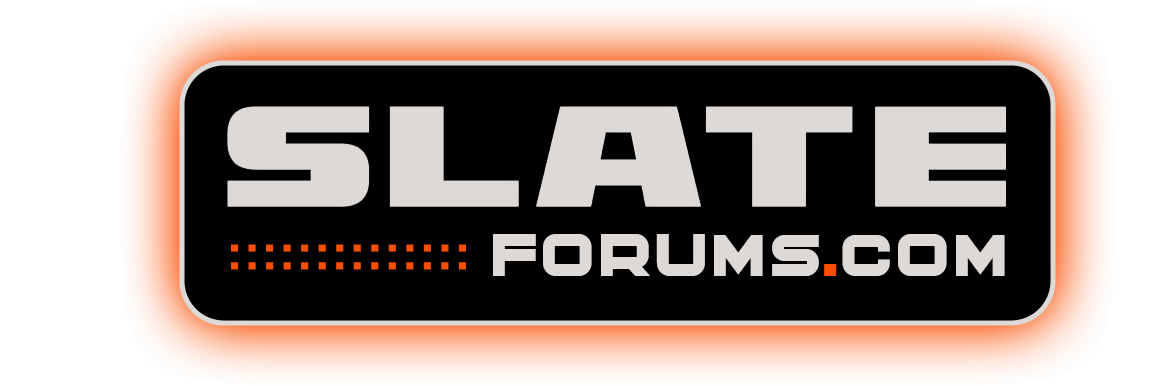jwocky
New Member
- Thread starter
- #1
Summary of the interview (generated by AI)
Summary
- 🚀 Chris Barman’s Background and Motivation
Chris Barman, formerly an engineer and executive in the automotive sector, was drawn to the challenge of reviving the concept of an affordable vehicle. With experience spanning Nissan, Ford, and more, Barman noticed that middle-class Americans were increasingly priced out of the new car market. Slate Auto was conceived as a response: a cost-conscious, modular electric vehicle that targets underserved price segments without skimping on core value.
- 📉 The Market Problem: Cars Are Too Expensive
The U.S. vehicle market is saturated with high-priced vehicles. On average, new cars cost $50,000 (roughly $900/month), and even used cars average $27,000 ($500+/month). Financial experts recommend only $400/month car expenses for those earning $100,000/year, revealing a massive gap between vehicle pricing and economic practicality. Slate’s approach zeroes in on this gap—offering something fundamentally new yet grounded in affordability.
- 🧱 Modularity at the Heart of the Product
The Slate vehicle is not only affordable—it’s purposefully designed to be upgradable. Starting as a one-configuration "blank slate," the vehicle invites owners to transform it over time into anything from a utility truck to a 5-passenger SUV. No dealership packages or trim levels; instead, modular add-ons, wraps, decals, and accessories can be added DIY-style or with third-party support.
- 🎨 A Platform for Expression: Wrapping and Design
Barman’s team worked with a leading wrap provider to integrate easy-wrapping characteristics into the car's design. Clean, linear panels and smart material selection make it possible to wrap the car without removing hardware—lowering customization costs. The choice of molded-in neutral slate gray as a base color further supports personalization with low-cost decal options (as little as $200).
- 🧑🔧 Slate University: Enabling the DIY Culture
Recognizing that not every consumer is naturally DIY-savvy, Slate is building Slate University—a hub of video tutorials and guides for modifying, wrapping, or accessorizing the car. This initiative seeks to create not just a customer base but a community of enthusiasts and innovators, akin to a movement.
- 📱 Tech Philosophy: Phones over Screens
Instead of embedding expensive infotainment systems, Slate encourages users to bring their own smartphones or tablets. A mounting rail system accommodates tablets, and traditional DIN-size radio bays are also available. This decision drastically reduces manufacturing costs while acknowledging that most consumers already use their phones for media and navigation.
- 🛡 Safety as Non-Negotiable
Despite cost-cutting measures elsewhere, safety remains a top priority. Features like automatic emergency braking, backup cameras, and electronic stability control are standard. The goal is to achieve top safety ratings (NCAP 5-star, IIHS Top Safety Pick) while still staying within budget.
- 🏗 Repurposing American Industry for Production
Manufacturing will take place in a former printing facility in Warsaw, Indiana, closed in 2023. The location provides low-cost access to an eager labor force and proximity to suppliers. This strategy lowers logistical costs and supports American re-industrialization—a core part of Slate’s ethos.
- 🛒 Bypassing the Dealership Model
Going direct-to-consumer allows Slate to preserve the customizability ethos of the platform. Dealers often impose package constraints; Slate wants customers to pick and pay only for what they need. Direct relationships also mean faster feedback loops and deeper engagement.
- 🧑🔧 Service Model Built on Partnerships
Instead of traditional dealer servicing, Slate will collaborate with local shops and community providers. Accessory installation, maintenance, and updates will be performed by trained partners, keeping service decentralized and accessible.
- 🌍 Fleet Sales and Broader Use Cases
The low cost and flexibility of Slate vehicles make them suitable for fleet buyers—both small and large. Their modularity and EV platform appeal to businesses like delivery, pest control, or tradespeople. A fleet sales team is already engaging clients through the Slate website.
- 📈 Reservations, Timelines, and Profit Goals
Customers can reserve a Slate vehicle for $50, refundable. While the company has not publicly disclosed exact reservation numbers, Barman indicates strong interest. - Full-scale production is scheduled for 2027, with profitability expected by late 2027 at 150,000 units/year.
